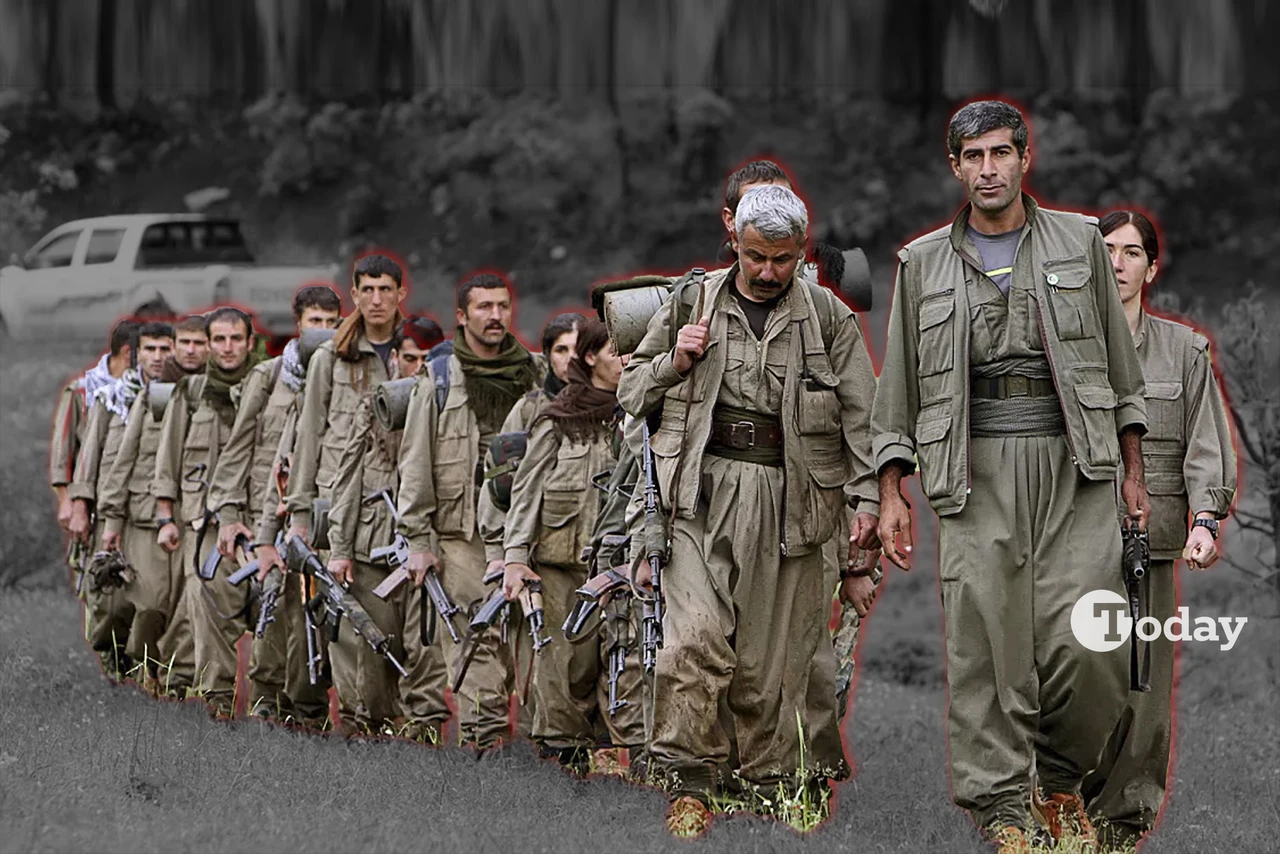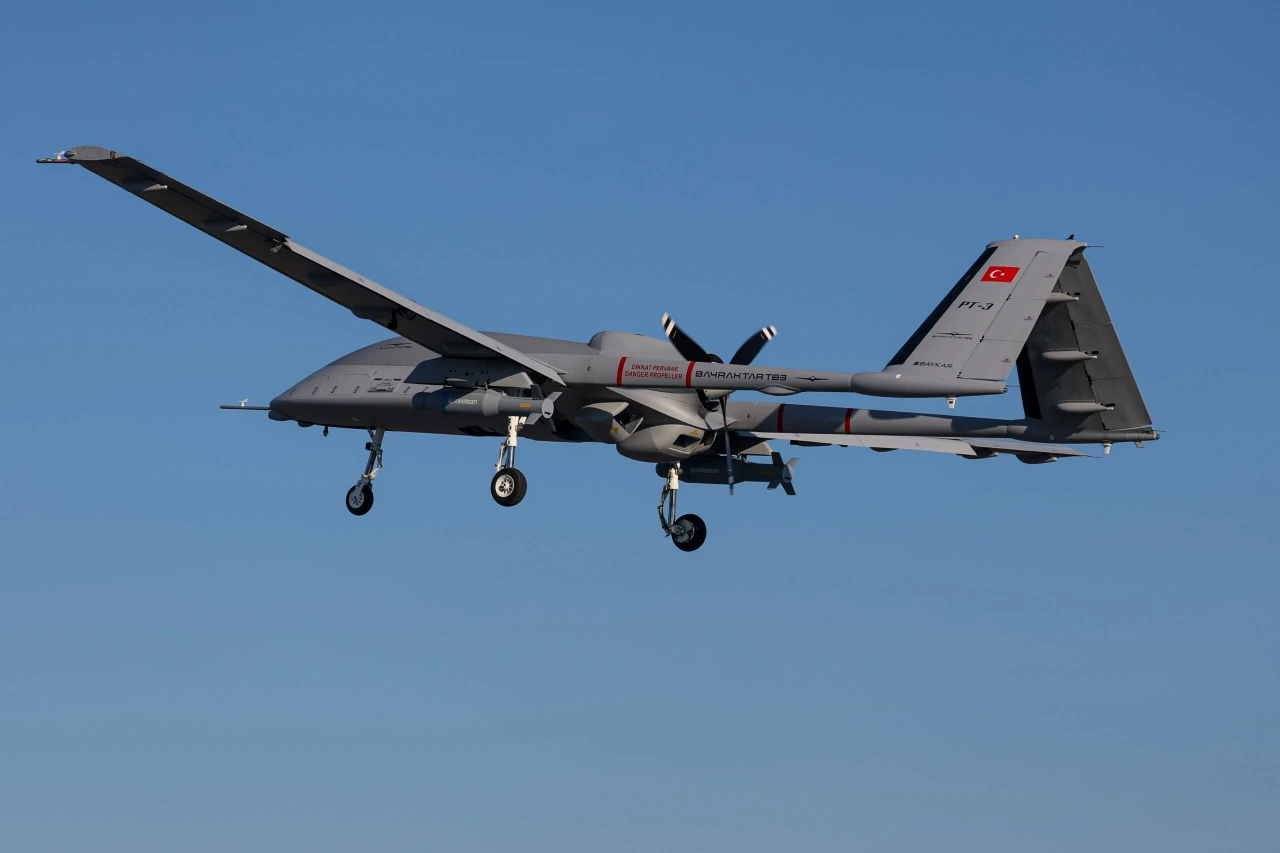Türkiye’s KAAN fighter ‘could be’ deployed on its aircraft carrier MUGEM
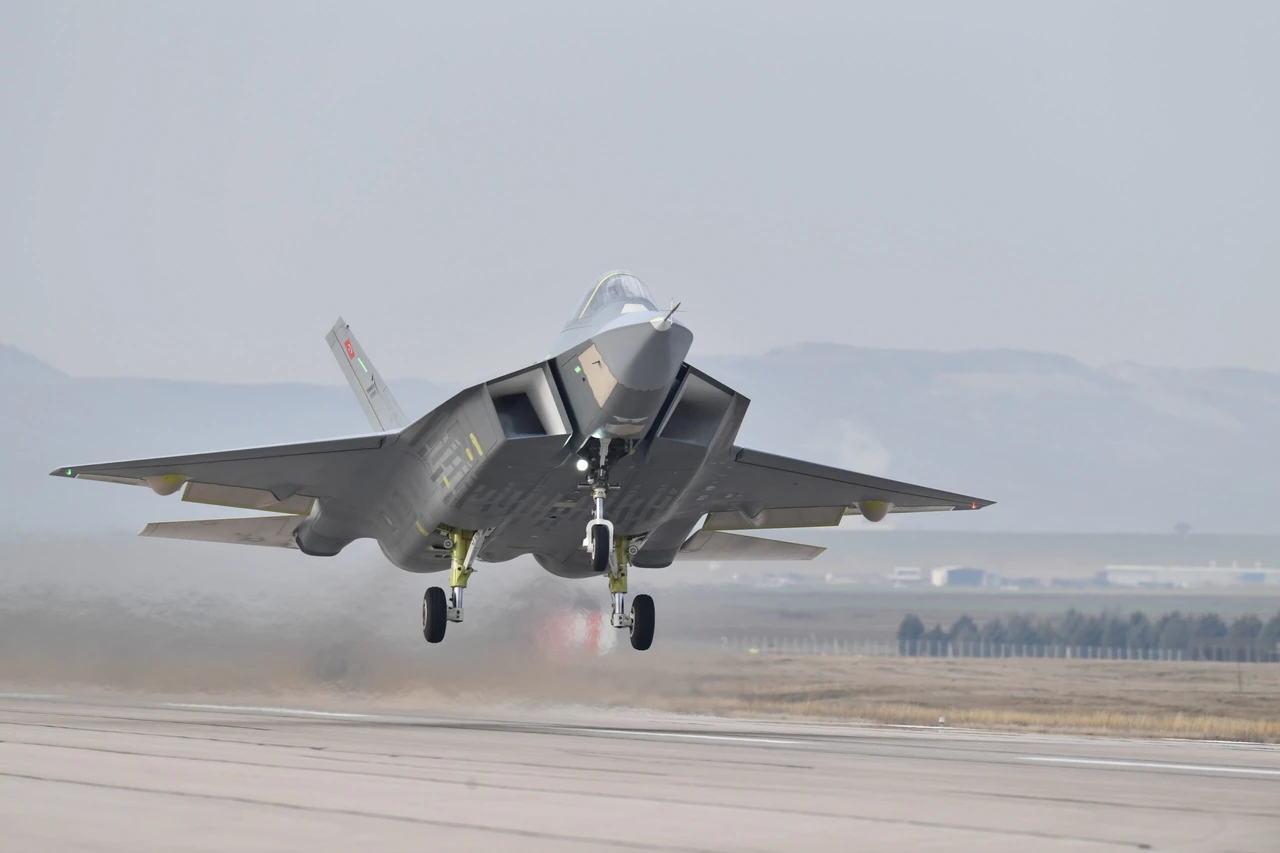 Türkiye's KAAN fighter jet. (Photo via TAI)
Türkiye's KAAN fighter jet. (Photo via TAI)
Türkiye’s first indigenous aircraft carrier, known as the National Aircraft Carrier (MUGEM), is advancing through critical design and system integration phases, with the possibility of accommodating the KAAN fighter jet’s naval version.
Speaking to the Turkish media outlet Sabah about the project’s latest developments, Turkish Navy’s Naval Design Project Office Director Associate Albay Ucar stated that the MUGEM program would position Türkiye among the world’s eight aircraft carrier-operating nations.
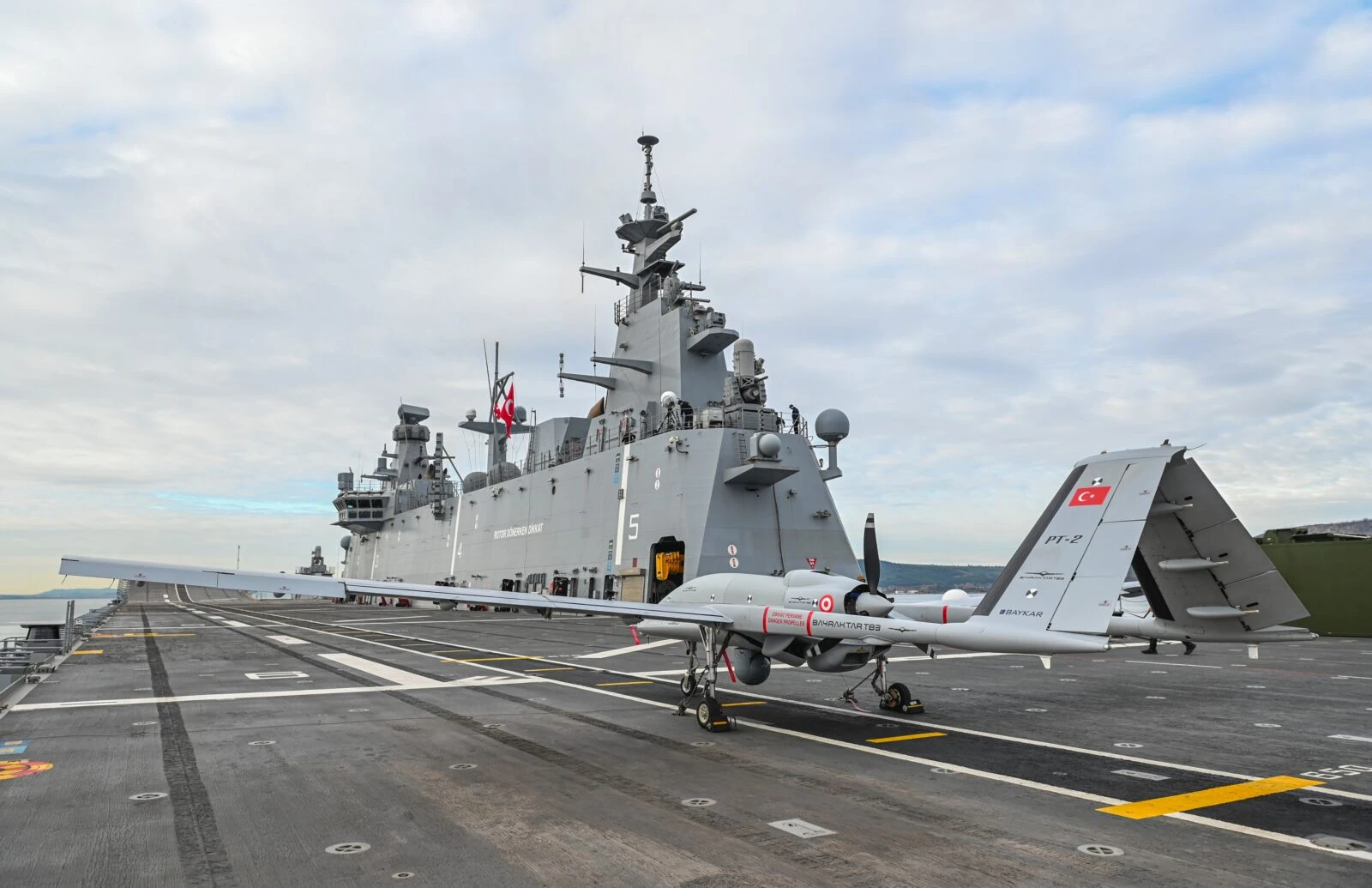
KAAN’s naval version in development
MUGEM is being designed to operate exclusively with domestically produced air platforms. Studies are underway to develop a naval variant of KAAN, Türkiye’s fifth-generation fighter jet, enabling its deployment on the carrier.
“If the naval version of KAAN is developed, we are coordinating with Turkish Aerospace Industries (TAI) to ensure compatibility for takeoff and landing operations on the aircraft carrier,” Ucar said.
He also confirmed that Baykar’s Kizilelma, TB-3, and TAI’s Hurjet and Anka-3 unmanned aerial vehicles would be operable from Türkiye’s aircraft carrier.
Our domestic and national aircraft, Baykar’s Kizilelma and TB-3, TAI’s HURJET and ANKA-3, will be able to take off and land from our aircraft carrier.
Turkish Navy’s Naval Design Project Office Director Associate Albay Ucar
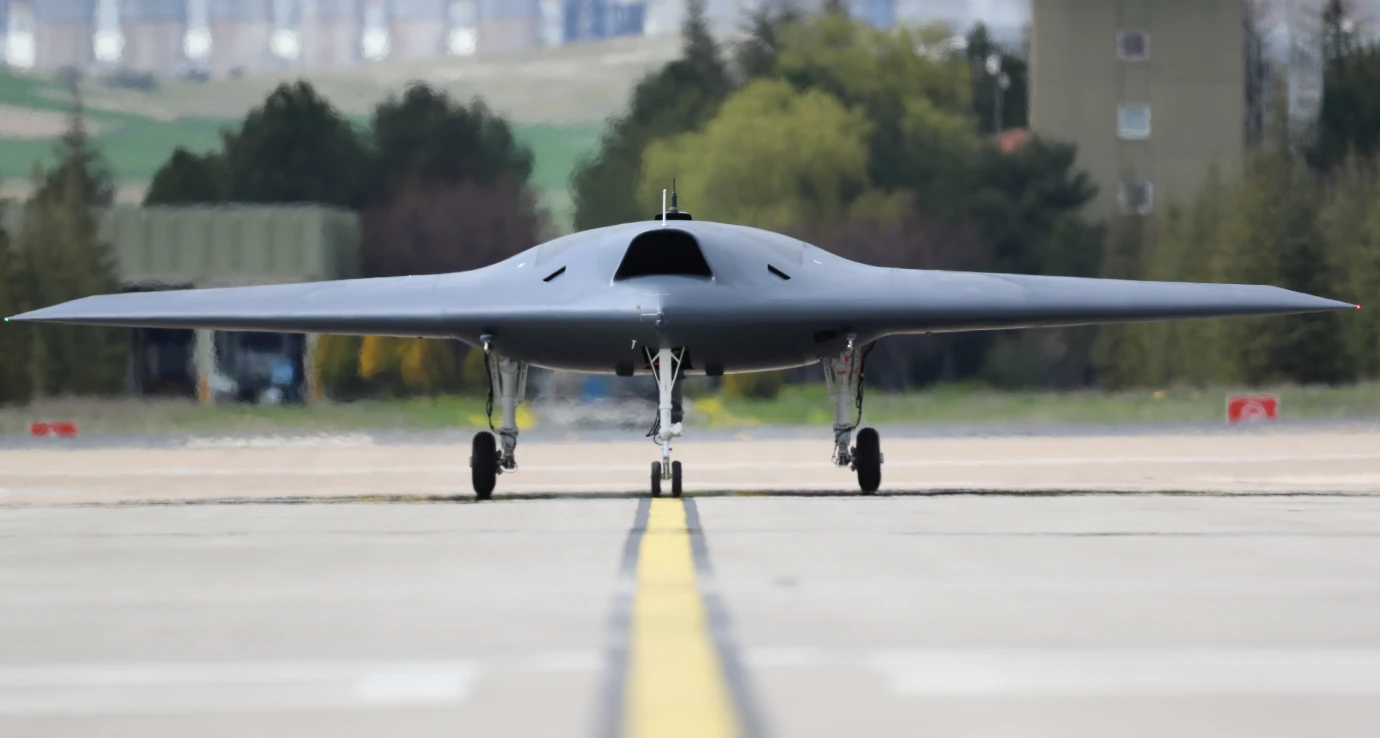
Indigenous arrestor system in progress
A critical feature of MUGEM is the development of a fully indigenous arrestor system to ensure the safe landing of carrier-based aircraft.
This system is expected to enhance Türkiye’s expertise in aircraft carrier technology.
Naval engineers are conducting extensive three-dimensional layout planning for MUGEM. A land-based test ramp has already been designed to simulate flight deck operations safely, and its construction is currently ongoing.
The critical rope catching system to be used in the landing of our aircraft will also be manufactured domestically.
Our ship will be equipped not only with indigenous aircraft, but also with indigenous and national advanced combat systems and the ADVENT national combat management system.
Turkish Navy’s Naval Design Project Office Director Associate Albay Ucar
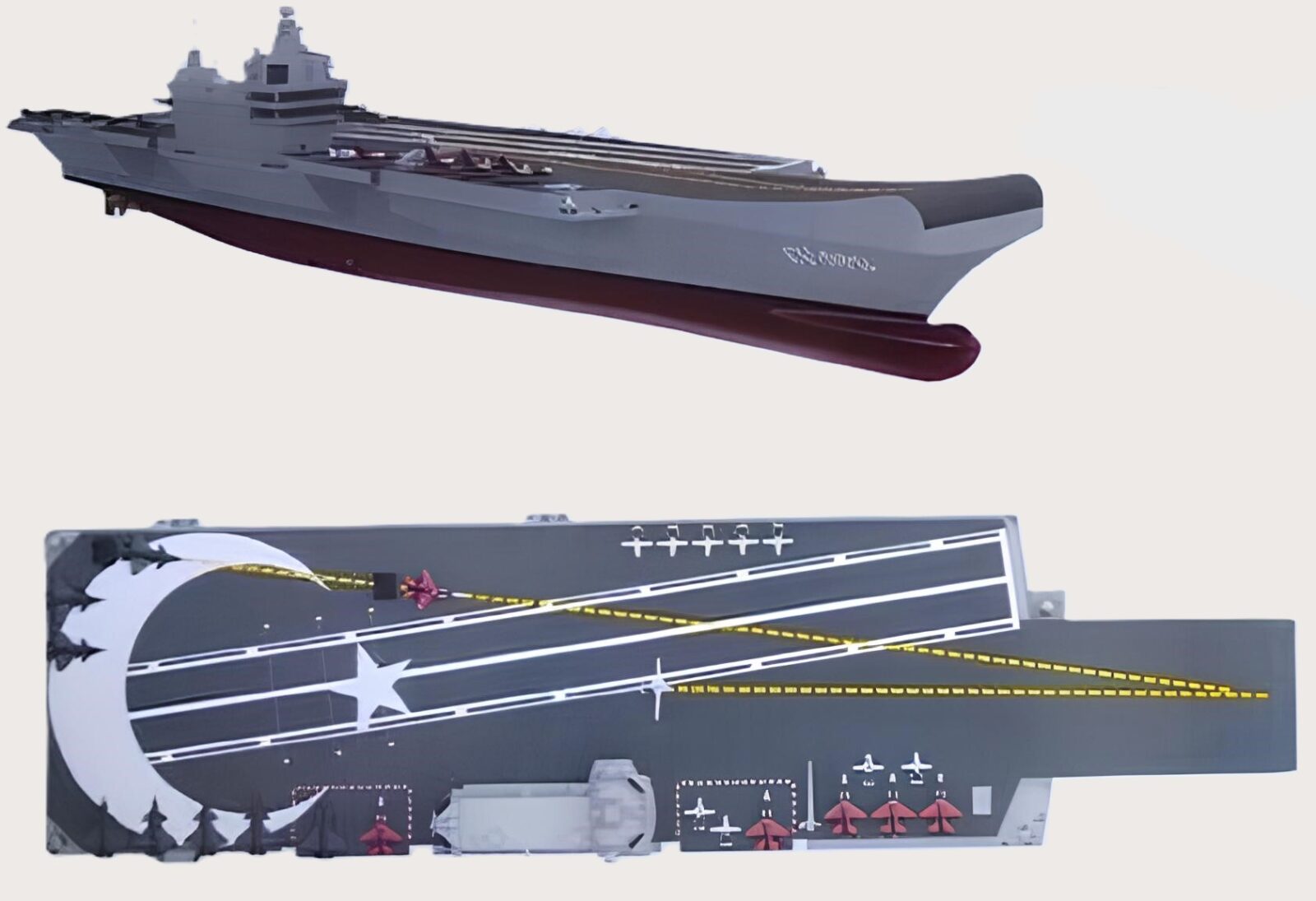
MUGEM’s technical specifications and localization rate
MUGEM is being developed with a high localization rate of over 85%.
Our ship was designed by the Navy’s team of engineers, and its construction was planned at our military shipyard.
We aim to use the widest range of indigenous systems on the ship. As of now, we foresee a localization rate of over 85% in our National Aircraft Carrier.
As a result of the design studies, the ship will have a displacement of approximately 60,000 tons (the amount of water displaced), a width of 72 m and a full length of 285 m.
The flight deck will have a double take-off runway with three runways and a landing runway. STOBAR, a short-range take-off and rope capture system for aircraft, will also be installed. It will be able to cover 10,000 nautical miles without refueling.
In other words, it will be able to travel from Istanbul to New York. With its main propulsion system consisting of four gas turbines, it will be able to reach a maximum speed of 25 knots (45 kilometers).
It will be able to perform naval missions with a minimum capacity of 50 manned and unmanned aircraft.
Turkish Navy’s Naval Design Project Office Director Associate Albay Ucar
Its technical specifications are expected to include:
- Displacement: 60,000 tons
- Length: 285 meters
- Width: 72 meters
- Flight deck: Three ski-jump takeoff runways, one landing runway
- Launch system: Short takeoff and arrested recovery (STOBAR) model
- Range: 10,000 nautical miles (equivalent to a round trip from Istanbul to New York)
- Speed: Maximum 25 knots (approximately 45 kilometers per hour)
- Aircraft capacity: At least 50 manned and unmanned aircraft
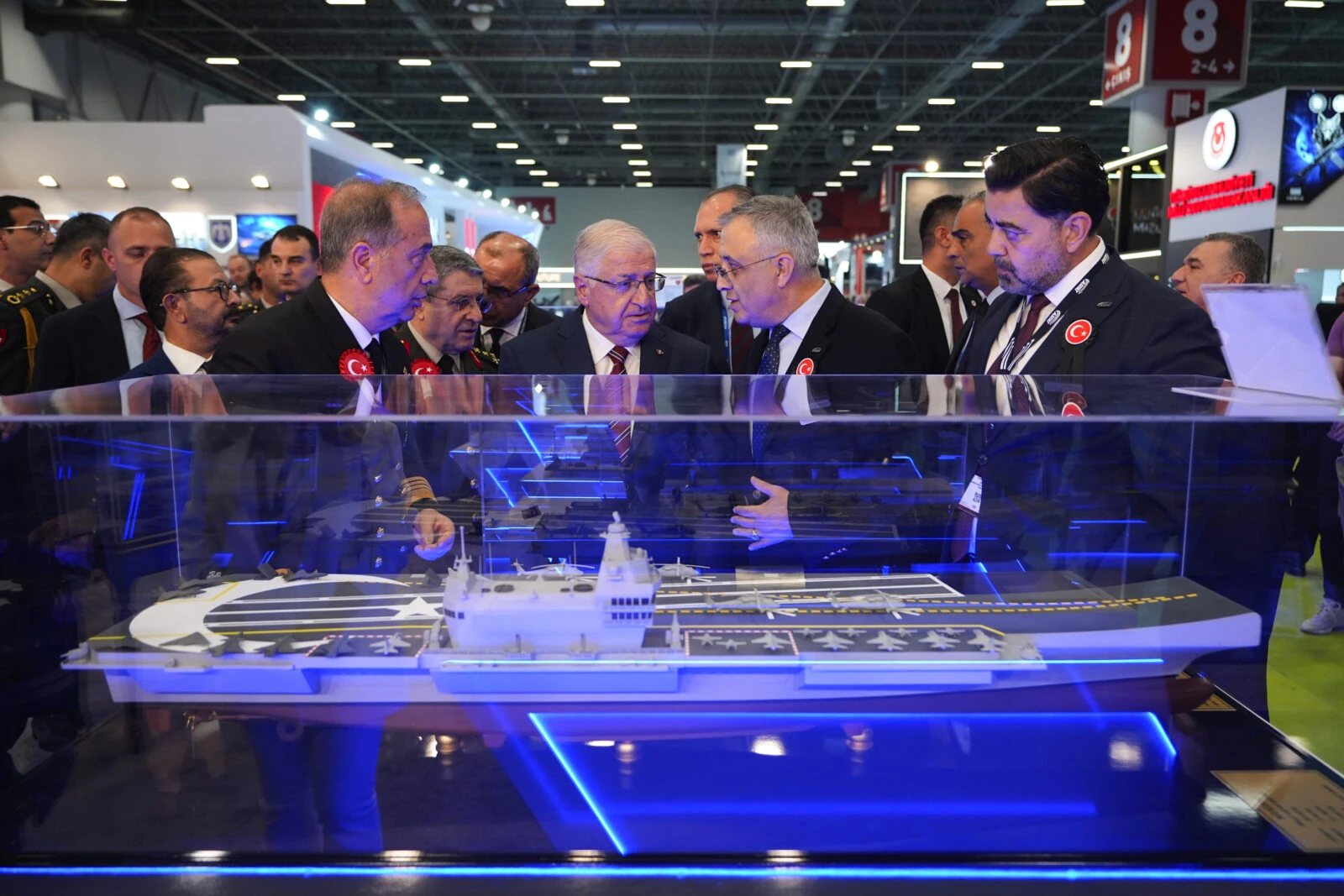
MUGEM will be equipped with ADVENT combat management system
MUGEM will be equipped with the domestically developed ADVENT combat management system and advanced indigenous combat systems, ensuring its operational efficiency.
The design of the ship is continuing rapidly in a way that will be completely unique to Türkiye.
For the design of the flight deck, which is the most critical element of our aircraft carrier, we worked together with Baykar and TAI companies based on our domestic and national aircraft. Thus, we have completed the design of our flight deck with ramp and hangar. We have completed the form, weight, capacity calculations and propulsion analysis of the boat that will carry the flight deck.
In this way, we have also determined the propulsion power and propulsion system that the ship will need. We have carried out multidimensional maritime analyses to ensure that our ship can operate even in the worst weather conditions in the world’s seas.
We are working on the ship’s three-dimensional layout plans. In order for our air vehicles to be deployed to MUGEM to safely perform take-off tests from the flight ramp, we first designed the land-based flight ramp. The construction of the test ramp is currently underway.
Turkish Navy’s Naval Design Project Office Director Associate Albay Ucar

Strategic impact and future prospects
The completion of MUGEM will significantly enhance Türkiye’s naval power, reinforcing its maritime deterrence and operational reach.
The carrier reportedly will initially deploy at least 50 domestically produced UAVs and UCAVs while engineering efforts continue to accommodate jet aircraft operations.
Türkiye recently emphasized that the vessel’s design is uniquely tailored to meet national requirements. The carrier’s modular construction approach is expected to accelerate production timelines while reducing costs, according to the Naval Design Project Office Director.
“The development of the indigenous aircraft carrier is not just a defense industry milestone but also a symbol of technological self-reliance,” Ucar stated. “Once completed, Türkiye will join an elite group of nations capable of operating an aircraft carrier.”
Ongoing collaboration between the Turkish Navy, TAI, and Baykar aims to ensure seamless integration of air assets onto MUGEM.
KAAN cannot operate on any aircraft carrier in its current configuration, so TAI needs to make serious revisions to the design. Of course, since these platforms will operate at sea, they must have a corrosion-resistant structure from the engines to the outer coating of the systems.
If Türkiye successfully carries out naval adaptation of KAAN, the country’s capabilities in carrier-based jet operations might reach a whole new level, expanding its influence in regional and global maritime security.

